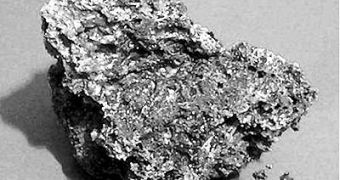The news that a top British scientist claims to have found the ultimate proof that alien life forms are very much real and not just a product of various people's imagination first hit the online community about a week ago.
Still, it took a few days before Professor Chandra Wickramasinghe's announcement managed to gain momentum and draw the media attention it deserved.
To cut a long story short, this researcher is firmly convinced that some fossilized algae remains he came across while analyzing a meteorite are proof enough that life as we know it might have come from outer space.
This meteorite crash-landed in Sri Lanka in last year's December, and Professor Chandra Wickramasinghe only stumbled upon said fossils when placing several bits and pieces of this space rock under a microscope, Zee News reports.
The British scientist explains that, after further investigating this issue, he reached the conclusion that the fossilized algae remains found inside this meteorite were fairly similar to various fossils of earth-based micro-organisms that date back to roughly 55 million years ago.
“These finds are crushing evidence that human life started from outside our Earth,” the professor commented with respect to his findings.
“We are all aliens - we share a cosmic ancestry. Each time a new planetary system forms a few surviving microbes find their way into comets. These then multiply and seed other planets. These latest finds are just more evidence to point to the overwhelming fact that life on Earth began on other worlds,” he went on to add.
As was to be expected, the scientific community was not in the least impressed with these findings, and several space researchers wished to make it quite clear that the meteorite most likely became contaminated with algae fossils when hitting the ground.
“There are serious inconsistencies with the data presented in the paper. The most important is that the rock they have found is yet to be proven to be a meteorite. Until that is done, no credence can be placed on the findings presented, especially when they are published in a non-mainstream journal,” stated Monica Grady, a professor of Planetary Sciences at the Open University’s Faculty of Science.

 14 DAY TRIAL //
14 DAY TRIAL //